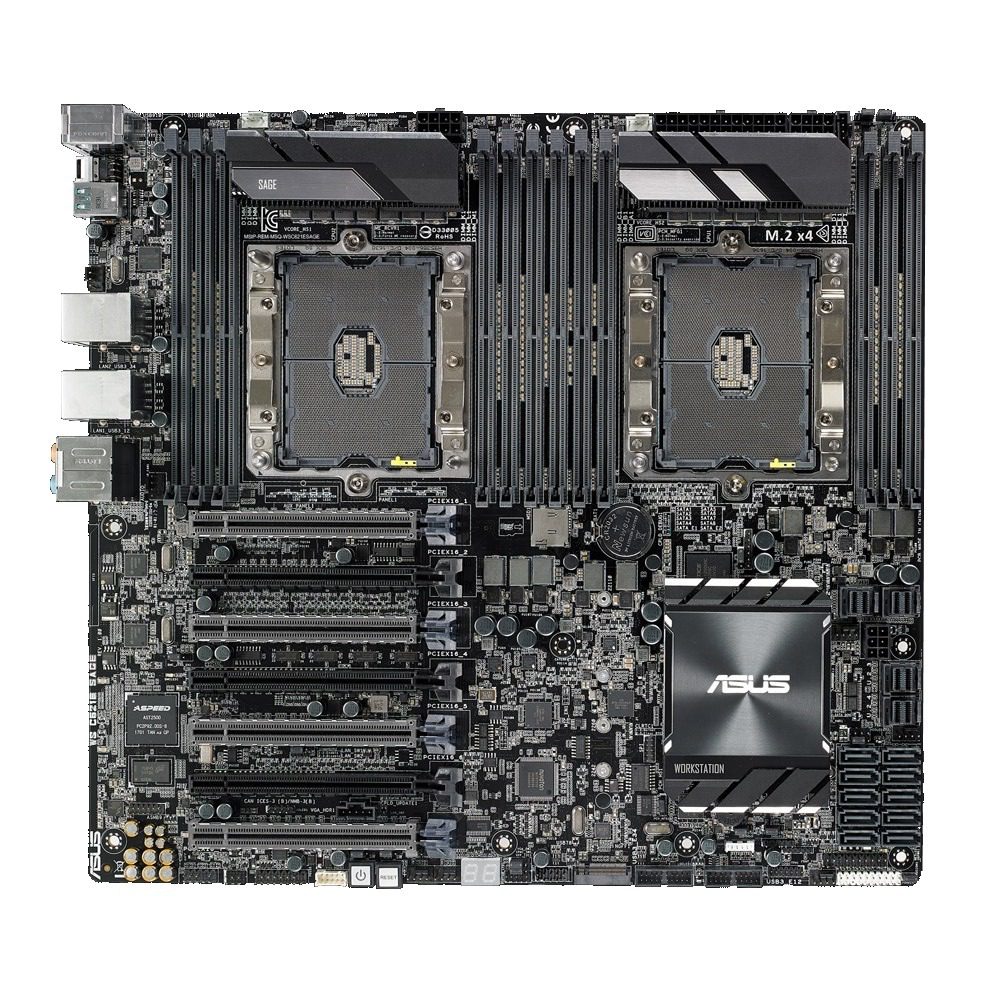Table of Contents
Introduction
While this is the only board that we've seen change like this, it’s likely others are affected. Recently, the ASUS C621E was patched and no longer provides the PTT option that used to be there. This could not have come at a worse time. Just as Microsoft started requiring a security device for the upgrade/installation of Windows 11, suddenly a CPU/board that used to support PTT, no longer does.
Primarily affected product
The ASUS WS C621E Sage dual CPU motherboard.
Currently, the C621E is the only board we have confirmed that has lost the function but it’s likely all the devices with that socket/chipset are also affected.
The ASUS Sage board includes PTT capabilities by default, and even on a number of our BIOS screenshots, this option can be seen/selected. Unfortunately, a recent update to the BIOS has removed that functionality, which means now you need a physical TPM chip. This would obviously be frustrating if you intended to use the PTT feature!
BIOS version
BIOS version 6102, qualified on 04/23/20, includes the option for PTT. This also means that any BIOS versions prior to 6102 will include the PTT selection.
From what we have found, 6201 and newer no longer allow PTT and instead require a dedicated TPM to be installed.
Since (nearly) every CPU supported by this board ALSO supports PTT, a number of our customers have reached out after unsuccessfully attempting to enable the PTT setting detailed in the 'Great TPM Dilemma' article.
TPM
Many desktop motherboards feature a header that allows users to install a Trusted Platform Module (TPM) for enhanced security. There is an alternative though, and you do not have to have a TPM to enjoy BitLocker in Windows. That is because you can use Intel Platform Trust Technology (Intel PTT), which was introduced back in 2013. Intel PTT is basically the firmware alternative to the hardware based TPM. Intel PTT works on pretty much every processor/chipset since 4th Gen Core (Haswell) processors were introduced, and it even supports BitLocker. This is because Intel PTT supports all Microsoft requirements for firmware Trusted Platform Module (fTPM) 2.0.
For a basic breakdown of TPM and it’s awesomeness, check out this article
Solution
Now you need a dedicated TPM device. Depending on the board/configuration, you need a very specific TPM module as there are a litany of options. We recommend you reach out directly to your Puget Systems Support team to identify which one you need. In most cases, we are also able to provide a quote for a TPM device, so you don't have to order from an unrespectable source 🙂
Conclusion
ASUS has decided to release a patch that disables the previously support PTT feature. This is problematic for many users as it forces them to use a dedicated TPM instead of a simple BIOS adjustment in order to be Windows 11 compliant. Thankfully, the system can still qualify for Windows 11, this article guides you through the options.
Need help with your Puget Systems PC?
If something is wrong with your Puget Systems PC. We are readily accessible, and our support team comes from a wide range of technological backgrounds to better assist you!
Looking for more support guides?
If you are looking for a solution to a problem you are having with your PC, we also have a number of other support guides that may be able to assist you with other issues.
